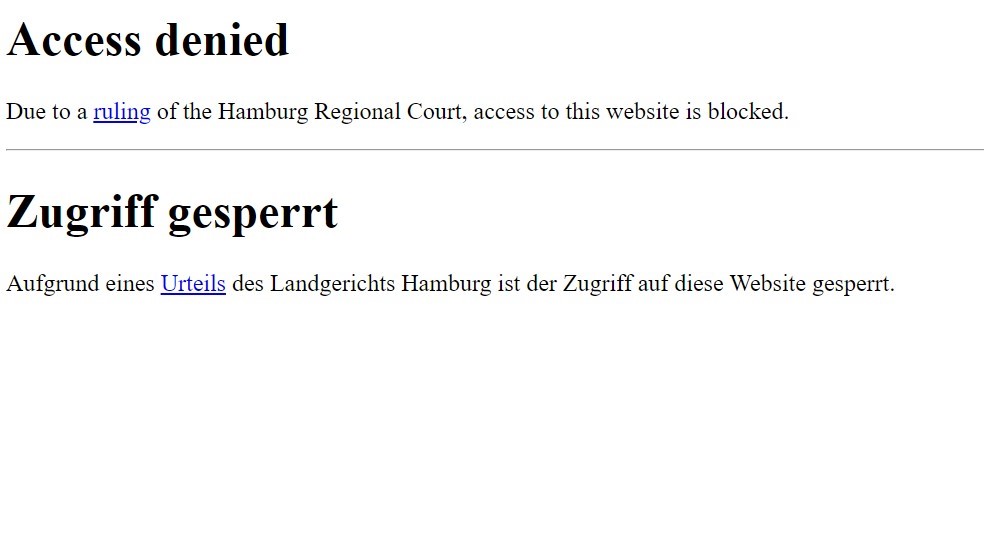A popular YouTube-ripping site has finally been blocked on copyright infringement grounds following a German court-ordered ban.
The takedown notice for youtube-dl was filed against German web hosting provider Uberspace in March and officially enforced on July 27, TorrentFreak reported. Despite GitHub being the platform hosting the open-source YouTube downloader, Uberspace was held legally liable because it linked to the developer platform.
At the time of writing, the website doesn't load and cannot be accessed not even by using a VPN service. Yet, Uberspace said to be committed to continue the legal battle against the "devastating" order thought to pave the way for more privatized censorship incidents.
YouTube-dl block
"I no longer have a choice but to follow the judgment. Otherwise, I would face a fine of €250,000 or jail time," Uberspace owner Jonas Pasche said to TorrentFreak, while ensuring that the company is ready to fight back.
"We are confident that a higher court will overturn the judgment of the Hamburg Regional Court, so we will be able to unblock the site as soon as this happens."
For the time being, users in and out Germany trying to access the youtube-dl site will see a message like the image below:

But, how did we get here? To better understand the events, we need to go back in 2020, when the RIAA presented the takedown notice to GitHub invoking the Digital Millennium Copyright Act (DMCA) and alleged piracy.
The platform initially complied with such a request, for then restoring the site and launching a strong legal defense with the help of experts like internet freedom advocates from the Electronic Frontier Foundation (EFF).
Sony, Warner and Universal didn't have any intention to give up their case, though. That's when the RIAA turned its attention towards the German hosting provider Uberspace. Germany already had a history of adopting a harder line against stream-ripping software bypassing YouTube’s cipher download protection.
Uberspace's arguments on how youtube-dl has plenty of legal use cases and the fact that YouTube's chiper protection could be circumvented using any regular web browser weren't enough to convince the Hamburg Court.
"[T]he average user must recognize that YouTube content, unlike media content on other websites, cannot be downloaded with a simple right-click and must be aware that this is achieved using technology on YouTube and that youtube-dl ‘overrides’ this protection. It is therefore to be assumed that the average user acts in bad faith," reads the Hamburg Court order.
youtube-dl doesn’t infringe or encourage the infringement of any copyrighted works, nor does it “circumvent” any technical protection measures on YouTube videos. But that hasn’t stopped the RIAA from looking for new ways to take it offline. https://t.co/vMGHQR4WQXMarch 4, 2022
Experts and courts have been coping with the difficulty of finding a balance between protecting internet freedoms and preventing copyright infringements for a while now.
For example, as streaming VPNs grow in popularity, the movie industry is pressuring harder providers to reveal identities of users over alleged copyright infringements—exactly what a person wants to prevent by using a VPN.
From individual users, both the music and movie industries are increasingly shifting their focus to providers. Yet, experts argued that this type of legal actions and court-ordered ban would ultimately curb digital freedoms more broadly.
Talking about the Hambourg court-ordered ban back in April, Pasche told TorrentFreak: "The consequences of this will be that hosting providers receiving complaints will most likely kick out their customers without a court ruling, for things that might be perfectly legal.
"This is a shameful day for freedom of speech. It’s paving the way for privatized censorship. Do we as a society really want this? We strongly believe we’re on the right side of history here."





0 Comments
If you have any doubts, Please let me know